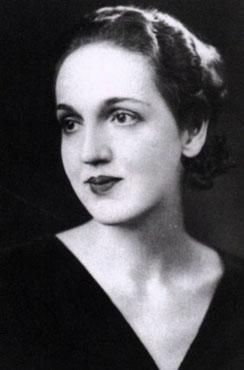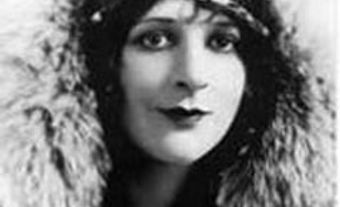
Early Life
Mona Parsons was the daughter of a successful businessman and was an independent woman. She studied acting and moved to New York City in 1929, where she became a Ziegfield showgirl. Her theatrical pursuits did not take her far and she became a nurse.
In 1937 Parsons married millionaire Willem Leonhardt, a Dutch businessman. The couple moved to Holland and lived a life of privilege until the Nazis invaded in 1940 (see also Second World War).
Second World War
She and her husband joined a resistance unit that rescued downed Allied airmen but their involvement was short-lived. A Nazi informer betrayed them to the Gestapo in 1941. They were arrested — first Mona in September and Willem in December — and held in separate prisons.
A Nazi tribunal was held the day after Leonhardt's arrest and Parsons was condemned to death. She appealed and her sentence was commuted in 1942 to life in prison. In 1945 Parsons was moved to Vechta Prison, which had been a reform school. There she met Baroness Wendelien van Boetzelaer, with whom she planned to escape when an opportunity arose, which happened during an Allied bombing raid. The men's side of the prison was bombed, and the women were taken outside. The warden, the former principal of the school, left the gates open and told the women they could take their chances with the Allied bombs or German bullets.
Parsons and van Boetzelaer made a break for it. For three weeks they made their way to the Allies posing as German sisters, with Mona feigning a speech impediment to cover her accented German. The women became separated and Parsons eventually reached a Canadian battalion, the North Nova Scotia Highlanders.
Post-War Life
Parsons and Leonhardt were reunited after the war, but he never fully recovered from his imprisonment and died in 1956. Parsons returned to Nova Scotia in 1957, where she became reacquainted with a childhood friend, Harry Foster. They married in 1959 and lived in Halifax. Foster died in 1964; Parsons moved back to Wolfville in the late 1960s, where she remained until her death.
Awards and Honours
She received a commendation for her war efforts from British Air Marshal Lord Tedder and US President Eisenhower.

 Share on Facebook
Share on Facebook Share on X
Share on X Share by Email
Share by Email Share on Google Classroom
Share on Google Classroom

